Find Help
More Items From Ergsy search
-
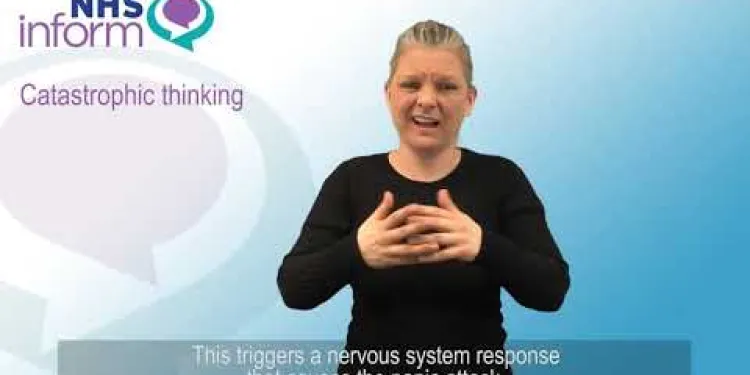
BSL - Causes of panic disorder
Relevance: 100%
-
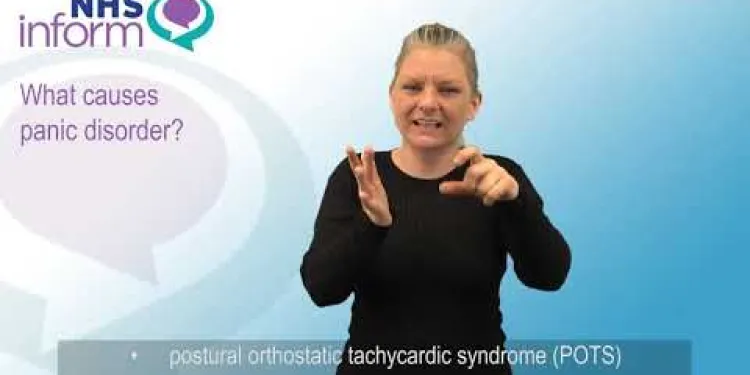
BSL - Introduction to panic disorder
Relevance: 85%
-
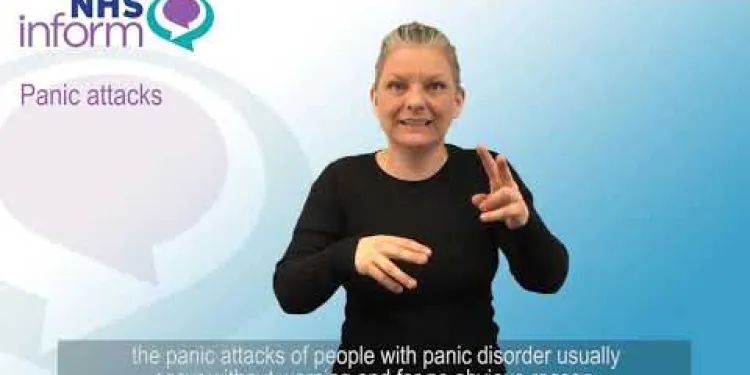
BSL - Diagnosis of panic disorder
Relevance: 85%
-
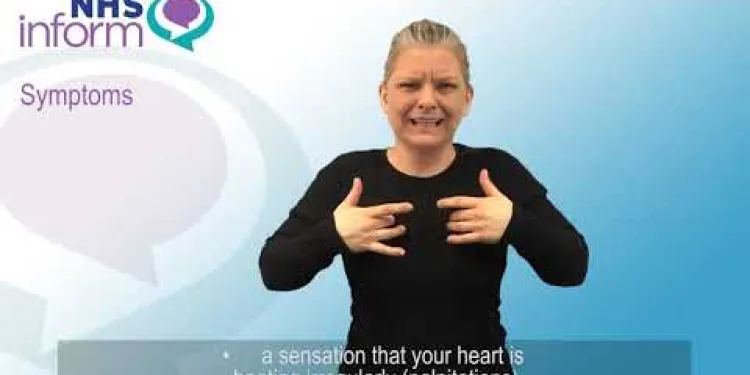
BSL - Symptoms of panic disorder
Relevance: 83%
-
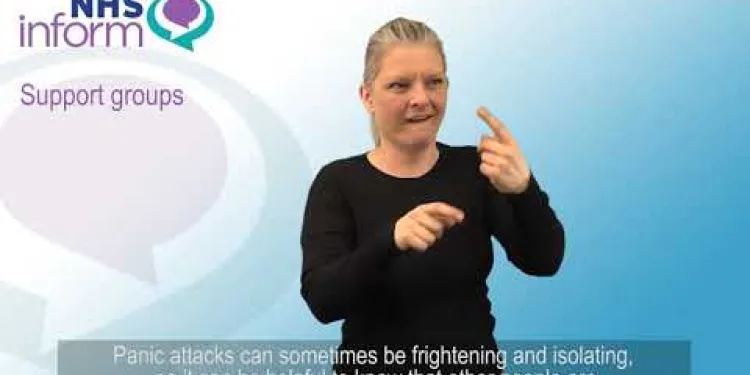
BSL - Treatment of panic disorder
Relevance: 82%
-
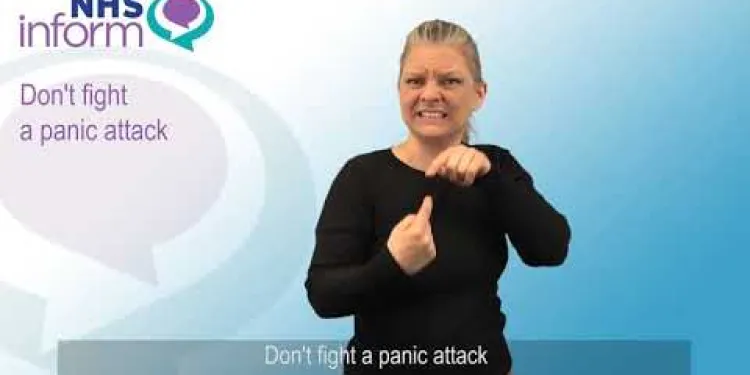
BSL - Panic disorder: things you can do to help yourself
Relevance: 69%
-
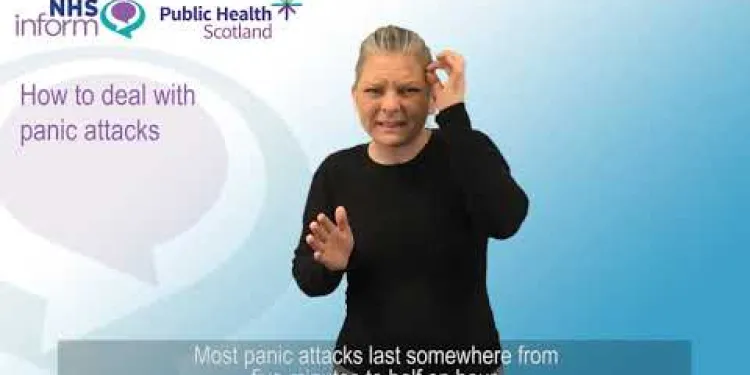
BSL - How to deal with panic attacks
Relevance: 50%
-
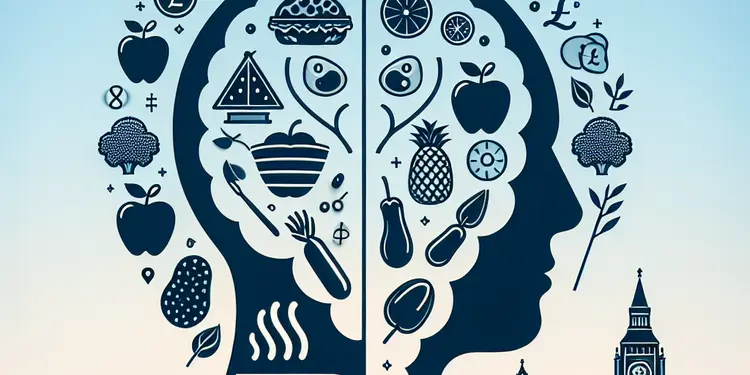
How do eating disorders affect mental health?
Relevance: 36%
-
What is an eating disorder?
Relevance: 36%
-
What is an Eating Disorder?
Relevance: 34%
-
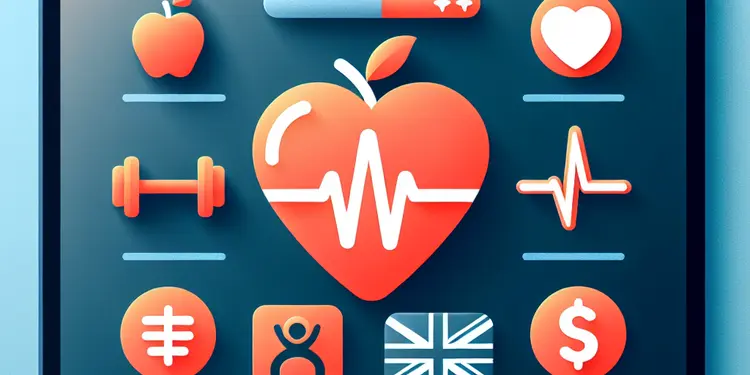
What is the impact of eating disorders on physical health?
Relevance: 32%
-
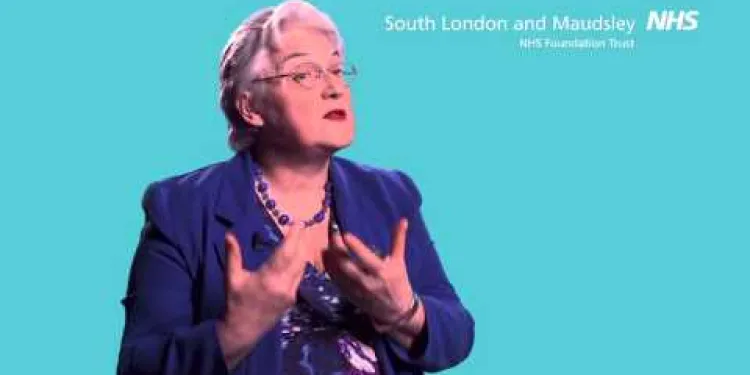
Eating disorders: treatment
Relevance: 32%
-

The treatment approach for an eating disorder
Relevance: 32%
-

Living with Bipolar Disorder
Relevance: 32%
-
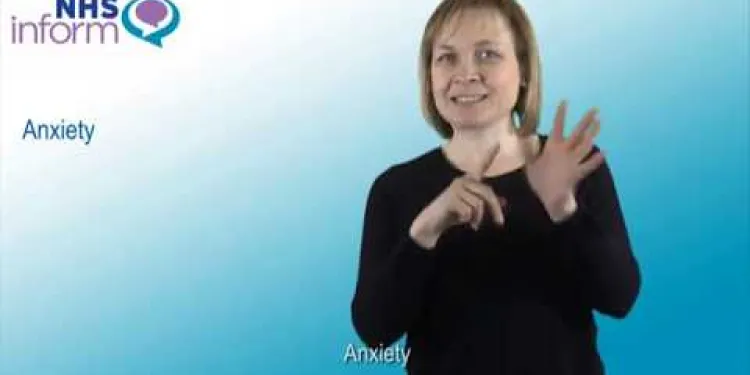
Generalised anxiety disorder (GAD)
Relevance: 32%
-
How are eating disorders diagnosed?
Relevance: 31%
-
What are the main types of eating disorders?
Relevance: 31%
-
What are common symptoms of eating disorders?
Relevance: 31%
-
Are there preventative measures for eating disorders?
Relevance: 31%
-

What causes ADHD?
Relevance: 31%
-
Can eating disorders be treated?
Relevance: 30%
-
What are the long-term effects of untreated eating disorders?
Relevance: 30%
-
Are eating disorders only about food?
Relevance: 30%
-
What is body dysmorphia and how is it related to eating disorders?
Relevance: 30%
-

What is seasonal affective disorder - or SAD?
Relevance: 30%
-

What is Seasonal Affective Disorder (SAD)?
Relevance: 30%
-

Jess Rann - Specialist Eating Disorders Dietitian
Relevance: 30%
-
Who is at risk for developing an eating disorder?
Relevance: 29%
-
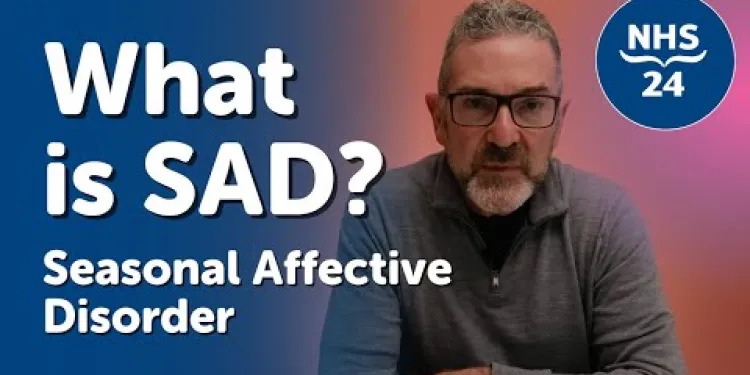
What is Seasonal Affective Disorder? (SAD)
Relevance: 29%
-
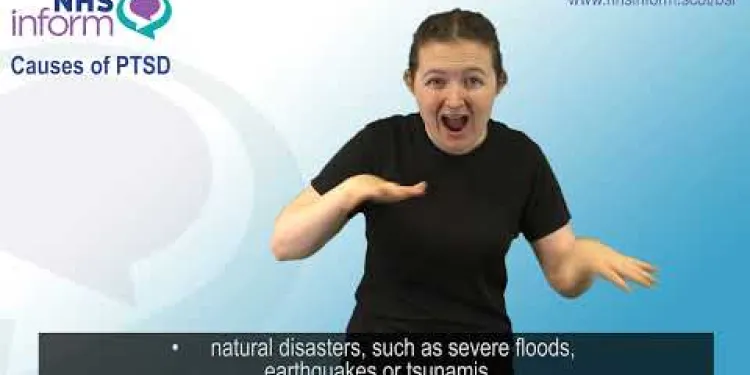
Post-traumatic stress disorder (PTSD) - Introduction
Relevance: 29%
-

Short Films About Mental Health - Personality Disorders
Relevance: 29%
-
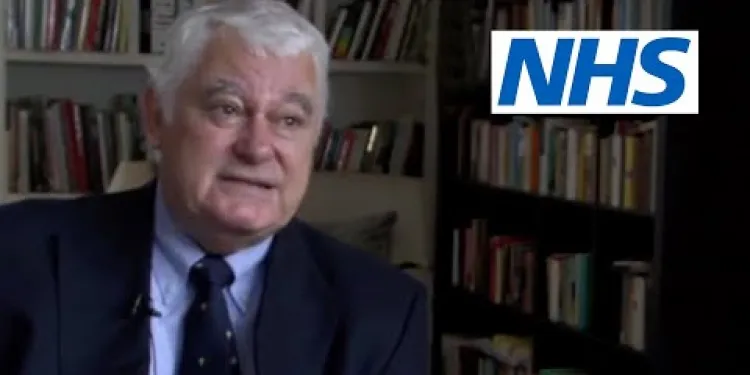
Bipolar disorder: Rod's story | NHS
Relevance: 29%
-

Is it possible for alcohol alone to cause similar symptoms?
Relevance: 29%
-

What causes SAD?
Relevance: 29%
-
Is it possible to recover from an eating disorder?
Relevance: 29%
-
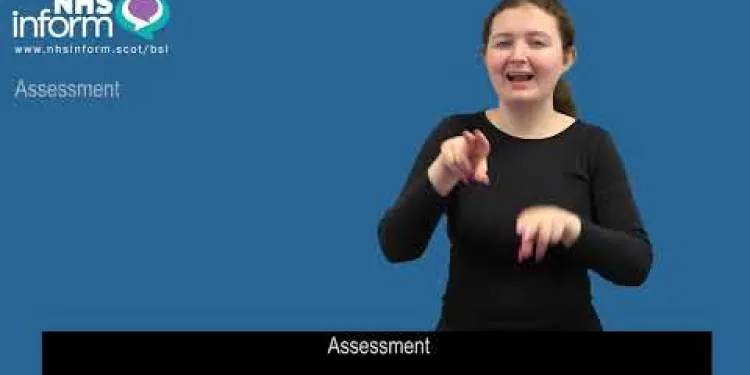
BSL - Diagnosis of obsessive compulsive disorder (OCD)
Relevance: 29%
-
Can eating disorders occur with other mental health conditions?
Relevance: 28%
-

How common is Seasonal Affective Disorder?
Relevance: 28%
-
What are some common myths about eating disorders?
Relevance: 28%
-

What causes autism?
Relevance: 28%
Understanding the Causes of Panic Disorder
Panic disorder is a significant mental health challenge affecting many individuals across the United Kingdom. Characterized by recurrent, unexpected panic attacks and constant worry about experiencing more episodes, this condition can severely impact daily life. Exploring the causes of panic disorder provides insight into preventing and managing this debilitating condition.
Biological Factors
Biological aspects play a crucial role in the development of panic disorder. Research suggests that genetic predisposition can increase the likelihood of experiencing panic attacks. If a close family member, such as a parent or sibling, has panic disorder, an individual is more likely to develop the condition. Additionally, imbalances in neurotransmitters, particularly serotonin and norepinephrine, are linked to panic disorder, influencing how the brain regulates mood and stress responses.
Psychological Factors
Psychological components significantly contribute to panic disorder. Individuals with a high level of anxiety, negative thinking patterns, or a history of trauma are more susceptible. Panic disorder often coexists with other mental health issues like depression, phobias, or generalized anxiety disorder, amplifying the risk and severity of panic attacks.
Environmental Factors
Environmental influences can trigger or exacerbate panic disorder symptoms. Stressful life events, such as the death of a loved one, divorce, or job loss, can induce panic attacks. Chronic stress from ongoing pressures, including work, financial difficulties, or strained relationships, can also contribute. Additionally, significant changes in daily routines or environments, such as moving to a new city, can provoke anxiety that leads to panic attacks.
Substance Use
Substance use, including alcohol, caffeine, and illicit drugs, can act as a catalyst for panic attacks. Regular consumption of these substances can disturb the nervous system, increasing vulnerability to panic disorder. Medications, particularly those affecting the central nervous system, may also have side effects that precipitate panic attacks.
Conclusion
Understanding the multifaceted causes of panic disorder is critical for developing effective prevention and treatment strategies. Awareness of biological, psychological, environmental, and substance-related factors can foster a supportive environment and encourage individuals to seek professional help. This knowledge is essential in the quest to mitigate the impact of panic disorder and enhance the quality of life for those affected in the United Kingdom.
Understanding Why Panic Disorder Happens
Panic disorder is a mental health problem that affects many people in the UK. It causes sudden panic attacks and makes people worry about having more. This can make daily life hard. Learning why panic disorder happens can help us stop it and manage it better.
Body Factors
Our body can play a big part in panic disorder. Some people are more likely to get panic disorder because of their genes. This means if your mom or dad has it, you might get it too. Chemicals in the brain, like serotonin and norepinephrine, are also important. They help control our mood and stress. If these chemicals are not balanced, it can lead to panic disorder.
Mind Factors
How we think and feel is also important. People who often feel very worried or have bad thoughts are more likely to have panic disorder. A past experience, like a bad or scary one, can make it worse. Panic disorder can happen along with other problems like depression or phobias, making panic attacks more likely.
Life Events
Things happening around us can make panic disorder worse. Big changes or hard times, like losing a loved one or a job, can cause panic attacks. Ongoing stress from problems at work, with money, or in relationships can also play a big role. Moving to a new place and leaving your routine can make you feel anxious and lead to panic attacks.
Alcohol and Drugs
Using substances like alcohol, caffeine, or illegal drugs can trigger panic attacks. These can affect how the nervous system works, making panic disorder more likely. Some medications can also have side effects that cause panic attacks.
Helping with Panic Disorder
Knowing the many causes of panic disorder helps us find ways to prevent and treat it. By understanding body, mind, life events, and substance factors, we can support people better. If you think you have panic disorder, it’s important to talk to a doctor or therapist. They can help improve your life and deal with the disorder.
Tips for Support
Here are some things that can help: - Write down your feelings to understand them better. - Practice deep breathing exercises to calm down during a panic attack. - Use relaxation apps that guide you through calming techniques. - Talk to friends or family about how you feel. - Ask for help from a mental health professional.
Frequently Asked Questions
What is panic disorder?
Panic disorder is a type of anxiety disorder characterised by sudden and recurrent panic attacks, which are intense periods of fear or discomfort that can peak within minutes.
What causes panic disorder?
The exact cause of panic disorder isn't fully understood, but it is thought to be a combination of genetic, psychological, and environmental factors.
Can genetics play a role in panic disorder?
Yes, panic disorder can run in families, suggesting that genetics can play a role in the development of this condition.
How do stressful life events contribute to panic disorder?
Stressful life events, such as the death of a loved one, divorce, or job loss, can trigger panic disorder in some individuals who may be predisposed to anxiety disorders.
Are chemical imbalances in the brain linked to panic disorder?
Imbalances of neurotransmitters, which are chemicals in the brain that transmit signals, are believed to be linked to panic disorder.
Is there a link between panic disorder and childhood trauma?
Yes, childhood trauma, such as abuse or the loss of a parent, can increase the risk of developing panic disorder later in life.
Can medical conditions cause panic disorder?
Certain medical conditions, such as thyroid problems, heart disease, and respiratory disorders, can cause symptoms similar to those of panic disorder.
How can substance abuse affect panic disorder?
Substance abuse, including the use of drugs and excessive alcohol, can exacerbate symptoms of panic disorder or increase the likelihood of developing the condition.
Are there specific personality traits associated with panic disorder?
Individuals with certain personality traits, such as being more sensitive to stress or prone to negative thinking, may be more susceptible to developing panic disorder.
Can hormonal changes trigger panic disorder?
Hormonal changes, such as those that occur during puberty, pregnancy, or menopause, may trigger or worsen symptoms of panic disorder in some individuals.
What role do environmental factors play in panic disorder?
Environmental factors, including exposure to prolonged stress or living in a high-pressure environment, can contribute to the onset or worsening of panic disorder.
Is there a connection between panic disorder and other mental health conditions?
Yes, individuals with panic disorder often have other mental health conditions, such as depression, other anxiety disorders, or phobias.
Can a traumatic event in adulthood trigger panic disorder?
Yes, experiencing a traumatic event in adulthood, such as an accident or a violent attack, can trigger panic disorder, especially in those predisposed to anxiety.
What types of physiological responses are involved in panic disorder?
Panic disorder can involve physiological responses, such as an increased heart rate, sweating, trembling, and difficulty breathing, often triggered by the body's 'fight or flight' response.
Can lifestyle choices impact the likelihood of developing panic disorder?
Lifestyle choices, such as a poor diet, lack of exercise, and insufficient sleep, can contribute to the development or exacerbation of panic disorder.
What is panic disorder?
Panic disorder is when someone has panic attacks often.
A panic attack is a sudden feeling of fear. It can make your heart beat fast, make you feel dizzy, and make it hard to breathe.
If you have panic disorder, it is important to talk to a doctor.
Ways to help with panic disorder:
- Breathe slowly and deeply
- Try to stay calm and relax
- Talk to a friend or family member
Panic disorder is when someone gets very scared or worried very quickly. It happens more than once. These scary feelings are called panic attacks, and they can happen fast.
Here are some ways to feel better:
- Talk to a trusted adult or friend about your feelings.
- Breathe slowly and deeply to calm down when you feel scared.
- Try drawing or doing activities that make you happy.
- Listen to calming music.
- Use an app on a phone that helps with relaxation.
What makes people have panic disorder?
We are not sure what causes panic disorder. But it might be because of family history, thoughts and feelings, and things around you.
Can Panic Attacks Be in Your Genes?
Some people have panic attacks. This means they feel very scared and nervous. It can happen suddenly.
Sometimes, panic attacks can run in families. This means that if your parents or grandparents have them, you might too.
Scientists study this to understand why it happens. They look at genes, which are like little instructions in our bodies.
If you want to know more, you can talk to a doctor. They can help you understand better.
To help with reading, you can use tools like audiobooks or ask someone to read with you.
Yes, panic disorder can happen in families. This means it might be passed down from parents to children through their genes.
How do stressful life events cause panic disorder?
Sometimes, hard things happen in life. These can make us feel very stressed and worried. These strong feelings can lead to a problem called panic disorder.
Panic disorder is when you get sudden and strong feelings of fear. It can make your heart beat fast and make it hard to breathe. You might feel dizzy or shaky.
After a big and stressful event, some people might start having these panic feelings. It’s important to talk to someone who can help, like a doctor or therapist.
To feel better, you can try deep breathing and relaxing exercises. These can help calm your body and mind. You can also talk to a friend about your feelings.
Big life changes, like when someone you love dies, you go through a divorce, or you lose your job, can make some people feel very anxious. This feeling is called panic disorder. Some people get it because they are more likely to feel worried.
Do changes in brain chemicals cause panic attacks?
Your brain has special chemicals that help it work.
Sometimes, these chemicals can get mixed up.
This might make some people feel very scared suddenly.
Feeling very scared suddenly is called a panic attack.
If you have panic attacks, talk to a doctor. They can help you.
Using calm breathing or talking to someone can help too.
Problems with brain chemicals, called neurotransmitters, might be connected to panic disorder. Neurotransmitters help the brain send messages.
Here's a tip to help: Use pictures or simple diagrams to show how neurotransmitters are like carriers of messages in the brain.
Is there a connection between panic disorder and bad things happening in childhood?
Yes, bad things that happen when you are a child, like being hurt or if a parent dies, can make it more likely for you to have panic attacks when you grow up.
Can health problems cause panic attacks?
Yes, some health problems can make people have panic attacks. A panic attack is when you feel very scared or worried, and your heart might beat fast. If you think you have panic attacks because of a health problem, you should talk to a doctor.
Tools to help:
- Talking to a doctor or nurse can help you understand more.
- Deep breathing can help calm you down during a panic attack.
- A friend or family member can support you when you feel scared.
Some health problems can make you feel like you have panic disorder. These problems include issues with your thyroid, heart disease, and breathing troubles.
How does using drugs or alcohol make panic disorder worse?
Using drugs or drinking too much alcohol can make panic disorder symptoms worse. It can also make it more likely for someone to get panic disorder.
What personality traits are linked to panic disorder?
Some people might have certain ways of thinking and feeling that are linked to panic disorder. These are called traits.
Here are some traits that might be linked to panic disorder:
- Feeling very worried or nervous a lot
- Finding it hard to relax
- Thinking a lot about bad things that might happen
Remember, having these traits does not mean you have a panic disorder. If you feel worried, there are people who can help, like doctors or counselors.
For support, try these techniques:
- Deep breathing exercises
- Talking to a trusted friend or adult
- Drawing or writing about how you feel
Some people might get panic disorder more easily. This can happen if they are very sensitive to stress or if they often have negative thoughts.
A few simple tools and techniques can help:
- Practice deep breathing to stay calm.
- Write down positive thoughts to feel better.
- Talk to a trusted friend or adult if you feel worried.
Can changes in body chemicals cause panic attacks?
Sometimes, changes in your body's chemicals can make you feel very scared or worried. This is called a panic attack.
If you feel scared a lot, talk to a doctor or a nurse. They can help.
Tools like calming music, deep breathing, or talking to someone you trust can also make you feel better.
Changes in hormones can make people feel more scared and worried. This can happen during times like puberty, when having a baby, or during menopause.
These changes can make panic disorder worse for some people.
If you feel this way, it can help to talk to someone you trust. Deep breathing or squeezing a stress ball can also help you feel better. You can also try using calming music or apps that help you relax.
How can things around us affect panic disorder?
Things around us can make panic disorder start or get worse. This can happen if you feel stressed for a long time or live in a difficult place.
Are panic attacks linked to other mental health problems?
People with panic attacks might have other mental health issues too. Some common ones are depression or anxiety. Talking to a doctor or a counselor can help.
You can use tools like calming breathing apps or write in a feelings journal to support yourself.
Yes, people with panic disorder often have other mental health problems, like feeling really sad (depression), feeling very worried (other anxiety disorders), or being very scared of things (phobias).
Can a scary event make adults feel a lot of panic?
Yes, going through something scary or bad as an adult, like a car crash or being hurt by someone, can make you have panic attacks. This happens more often if you already worry a lot.
What happens in your body during a panic attack?
When you have a panic attack, your body might do some things that feel strange or scary. Here are some things that can happen:
- Your heart might beat really fast.
- You might start sweating a lot.
- You could feel like you can't breathe easily.
- Your hands could shake.
- You might feel dizzy or light-headed.
- It might feel like your chest hurts or is tight.
These feelings come from your body reacting to stress, even if there is nothing to be afraid of.
If you ever feel like this, try to sit down and take slow, deep breaths. It can help to close your eyes and think about somewhere calm and safe. If you need help, talk to a parent, teacher, or someone you trust.
Panic disorder can make your body feel scared. Your heart might beat fast. You might sweat, shake, or find it hard to breathe. This happens because your body thinks it needs to get ready to run or fight.
Can the way you live change the chance of getting panic attacks?
The way you live means your lifestyle choices, like what you eat, how much sleep you get, and if you exercise.
These choices can change if you might get panic attacks or not.
To help, try these things:
- Eat healthy food
- Get enough sleep
- Do exercise
Things like eating unhealthy food, not moving enough, and not sleeping well can make panic disorder worse or cause it to happen.
Useful Links
Have you found an error, or do you have a link or some information you would like to share? Please let us know using the form below.
-->
This website offers general information and is not a substitute for professional advice.
Always seek guidance from qualified professionals.
If you have any medical concerns or need urgent help, contact a healthcare professional or emergency services immediately.
Some of this content was generated with AI assistance. We’ve done our best to keep it accurate, helpful, and human-friendly.
- Ergsy carfully checks the information in the videos we provide here.
- Videos shown by Youtube after a video has completed, have NOT been reviewed by ERGSY.
- To view, click the arrow in centre of video.
- Most of the videos you find here will have subtitles and/or closed captions available.
- You may need to turn these on, and choose your preferred language.
- Go to the video you'd like to watch.
- If closed captions (CC) are available, settings will be visible on the bottom right of the video player.
- To turn on Captions, click settings .
- To turn off Captions, click settings again.
More Items From Ergsy search
-

BSL - Causes of panic disorder
Relevance: 100%
-

BSL - Introduction to panic disorder
Relevance: 85%
-

BSL - Diagnosis of panic disorder
Relevance: 85%
-

BSL - Symptoms of panic disorder
Relevance: 83%
-

BSL - Treatment of panic disorder
Relevance: 82%
-

BSL - Panic disorder: things you can do to help yourself
Relevance: 69%
-

BSL - How to deal with panic attacks
Relevance: 50%
-

How do eating disorders affect mental health?
Relevance: 36%
-
What is an eating disorder?
Relevance: 36%
-
What is an Eating Disorder?
Relevance: 34%
-

What is the impact of eating disorders on physical health?
Relevance: 32%
-

Eating disorders: treatment
Relevance: 32%
-

The treatment approach for an eating disorder
Relevance: 32%
-

Living with Bipolar Disorder
Relevance: 32%
-

Generalised anxiety disorder (GAD)
Relevance: 32%
-
How are eating disorders diagnosed?
Relevance: 31%
-
What are the main types of eating disorders?
Relevance: 31%
-
What are common symptoms of eating disorders?
Relevance: 31%
-
Are there preventative measures for eating disorders?
Relevance: 31%
-

What causes ADHD?
Relevance: 31%
-
Can eating disorders be treated?
Relevance: 30%
-
What are the long-term effects of untreated eating disorders?
Relevance: 30%
-
Are eating disorders only about food?
Relevance: 30%
-
What is body dysmorphia and how is it related to eating disorders?
Relevance: 30%
-

What is seasonal affective disorder - or SAD?
Relevance: 30%
-

What is Seasonal Affective Disorder (SAD)?
Relevance: 30%
-

Jess Rann - Specialist Eating Disorders Dietitian
Relevance: 30%
-
Who is at risk for developing an eating disorder?
Relevance: 29%
-

What is Seasonal Affective Disorder? (SAD)
Relevance: 29%
-

Post-traumatic stress disorder (PTSD) - Introduction
Relevance: 29%
-

Short Films About Mental Health - Personality Disorders
Relevance: 29%
-

Bipolar disorder: Rod's story | NHS
Relevance: 29%
-

Is it possible for alcohol alone to cause similar symptoms?
Relevance: 29%
-

What causes SAD?
Relevance: 29%
-
Is it possible to recover from an eating disorder?
Relevance: 29%
-

BSL - Diagnosis of obsessive compulsive disorder (OCD)
Relevance: 29%
-
Can eating disorders occur with other mental health conditions?
Relevance: 28%
-

How common is Seasonal Affective Disorder?
Relevance: 28%
-
What are some common myths about eating disorders?
Relevance: 28%
-

What causes autism?
Relevance: 28%


